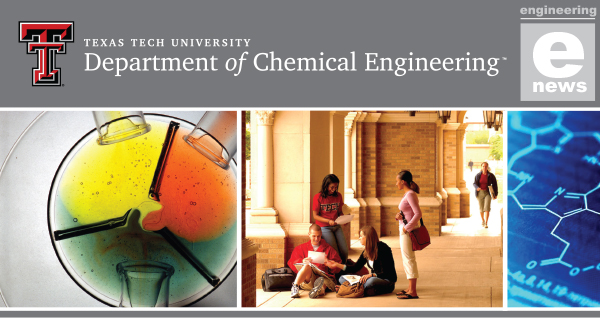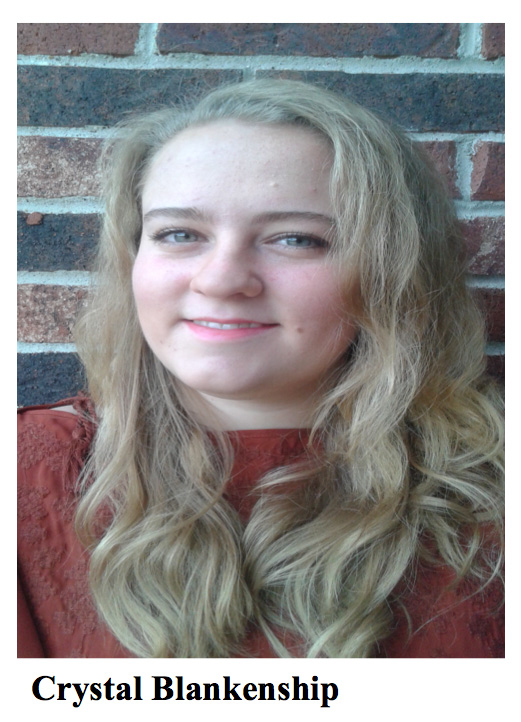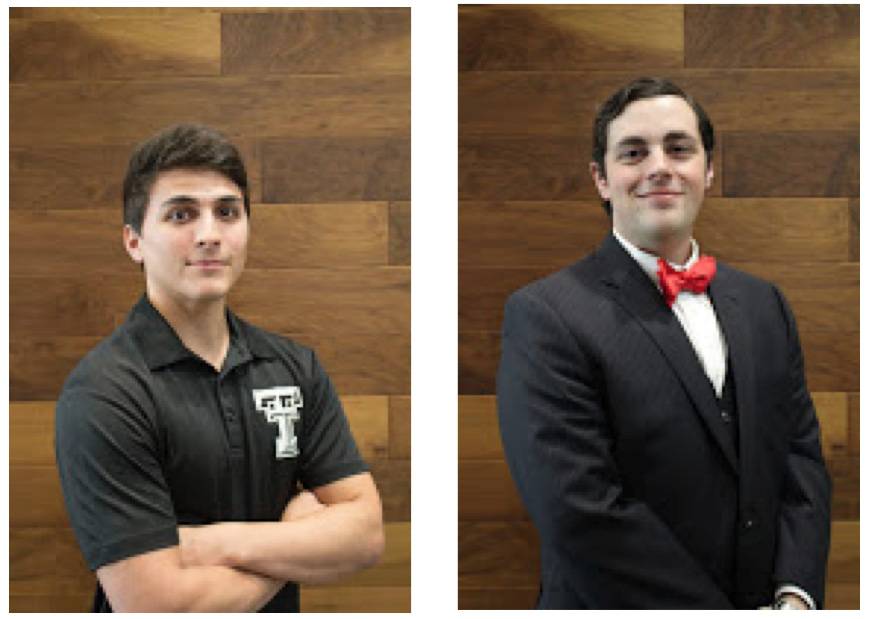
Our Students
ChE Students Garner Awards for Innovation
Crystal Blankenship, a junior in Chemical Engineering, is on a mission to change the student housing system at Texas Tech. Her novel ideas have received recognition – Crystal was named a University Innovation Fellow (UIF). This international program is hosted by the Stanford Institute of Design and provides students with a unique seven-week training on innovation and design thinking techniques with a focus on developing agents of change. Crystal is one of four change agents on Texas Tech's campus this year, following eight fellows from previous years. She has finished her training and will go to Stanford University over spring break for an annual meeting of fellows that will include workshops to further develop her skills, as well as tours of innovative companies in Silicon Valley, such as Google, to demonstrate efforts toward developing a community of unique thinkers.

As part of the UIF training, each Fellow identifies a problem on campus. Crystal realized that most Texas Tech students choose a major that is not synonymous with their passions. In fact, Crystal has discovered through interviewing her peers that a vast majority of students choose a path that actually suppresses their passions solely because of social and financial stigmas that the student body has created by defining each individual by major. Her goal is to minimize these social stigmas by developing a student body that is united by passion, thus creating more successful students and a stronger work force after graduation. But, how could this be accomplished? Through ideating and the mapping of ideas with tools provided by Stanford, Crystal developed the idea that this could be accomplished by separating dorms by passion to create small communities within the university that are each driven toward a larger, common goal. Texas Tech could carry out this idea by determining each person's dorm through identification of student passions within the housing application. Then throughout the semester, the dorms would host gatherings as a forum for discussion about student's innovative ideas. This process would create students that are more invested in their education and careers rather than the sole financial advantages. Honors Dorms serve as the best example of students in different majors united by educational passions. This validates Crystal's concept of uniting different majors by passion, as these are some of the most successful students on campuses throughout the nation.
The administration is supportive and respectful of Crystal's thoughts, while also willingly critiquing details to create a more defined solution. As with any project, there are many problems to address before assuring an implementable, fool-proof solution, and Texas Tech faculty and staff have been helping Crystal tackle these issues. This unique approach will work, but how can Crystal and Texas Tech unify the students in support of the idea? Ideally, one semester the university would implement the process in one dorm as a trial and offer students the chance to participate. In said semester, Texas Tech and Crystal would work together to receive feedback as the year progresses and compare success rates between students within the different dorm styles. Crystal hopes to accomplish this within her time at Texas Tech, but starting a whole movement takes time so she fully intends to collaborate with future Fellows to continue this project so that it can become sustainable. While this is a time-consuming challenge, implementing this change will provide Texas Tech students with a workplace advantage, elevated ideating, and a more successful future. We're proud of Crystal and her work to try to make a difference!

Chemcial engineering students, Brandon Palomo (shown left) and Aric Denton were members of a Texas Tech team of students that won a silver medal at the 2016 International Genetically Engineering Machine (iGEM) Competition. Brandon, a senior in ChE, served as President and Team Leader, and Aric, an MS student in ChE, served as Dry Lab Manager. In addition to Brandon and Aric in chemical engineering, the Texas Tech iGEM team was composed of 14 undergraduate and graduate students with backgrounds in microbiology, animal science, cell and molecular biology, biochemistry, mathematics, and physics, as well as mechanical and electrical engineering. The diversity of the team enabled the students to tackle a novel bioengineering project, entitled "Enhanced Wound Healing Using a Protein-Infused Collagen Scaffold." Although the primary supervisor was Dr. Annette Sobel, an Associate Professor of Medical Education, Dr. Wei Li in Chemical Engineering provided the bioengineering support for the project, helping the students to develop the protein-infused collagen scaffold. In his laboratory, the students used bioengineering techniques to grow E. coli bacteria that was genetically engineered to produce protease inhibitor, aprotinin, and platelet derived growth factor (PDGF). They then purified these two components using a bioreactor in Dr. Li's laboratory and incorporated them into a synthetic collagen scaffold. The aprotinin serves to counter proteases, which are overproduced in chronic wounds and result in both the degradation of growth factors that induce tissue growth and degradation of the collagen scaffold into which new cells migrate; thus, the aprotinin improves the ability of new cells to integrate into the scaffold. The students also include PDGF into the scaffold because it has been approved by the FDA for human treatment and is effective for helping chronic wounds to heal faster. The students envision that their technology will be used in bandages for wound dressings and will lead to a novel synthetic-biology-based therapy that helps eliminate chronic wounds.
Edward E. Whitacre Jr. College of Engineering
-
Address
100 Engineering Center Box 43103 Lubbock, Texas 79409-3103 -
Phone
806.742.3451 -
Email
webmaster.coe@ttu.edu


